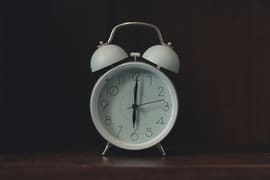Why does alcohol make you pee? This is a common question but one that has clear answers. Find out why using alcohol makes you need to urinate more.
The increased urge to urinate while drinking alcohol is triggered by certain chemical changes and is fairly common. In cases of long-term alcohol misuse, it’s important to take alcohol-related urinary changes seriously.
Article at a Glance:
- Alcohol use causes frequent urination because of chemical changes in the kidneys and an increased amount of fluid from alcoholic beverages
- Alcohol use can cause harmful byproducts and dehydration
- Long-term alcohol abuse can lead to kidney problems
- The only way to eliminate all risk of alcohol-related kidney damage is to stop drinking alcohol
- Drinking water while drinking alcohol helps keep the body hydrated and reduces the risk of long-term kidney damage
Is Alcohol a Diuretic?
Diuretics are medications or chemicals that cause you to create a larger volume of urine than usual. Alcohol is considered a diuretic because it suppresses vasopressin (also called the “antidiuretic hormone”), causing increased amounts of urine.
Alcohol and Frequent Urination
Drinking alcohol leads to more urine production and increased urination. Even a single alcoholic beverage can create more urine than a drink of water the same size.
Two factors cause the increased urinary frequency that happens with alcohol consumption:
- Chemical changes in the kidneys
- The increased amount of fluid in the body from alcoholic beverages
The frequent urination issues that alcohol causes are primarily due to chemical changes that occur when drinking alcohol. Alcohol suppresses areas of the brain that release a chemical called vasopressin. In normal conditions, this chemical causes the kidneys to reabsorb some of the fluid filtered through the kidneys.
This effect helps regulate the amount of urine produced. When the amount of vasopressin is lowered, the body does not reabsorb as much fluid from the kidneys, causing them to increase the amount of urine produced.
In addition alcohol’s impact on vasopressin, the volume of alcohol also contributes to the amount of urine produced. While the effects of vasopressin on the kidneys have the most significant impact on urine production, the amount of alcohol consumed also increases urine production, as the body must get rid of that extra fluid. Essentially, the more a person drinks, the more they will have to urinate.
Long-term Urinary Effects of Alcohol
While alcohol may cause a short-term increase in urine production, it can also lead to long-term kidney damage that can permanently alter how much urine the body makes and reduce its ability to filter harmful substances.
Kidney damage from alcohol use occurs in two ways and is more common with long-term alcohol use.
Unhealthy Byproducts From Alcohol Use
Alcohol produces unhealthy chemical byproducts as it is broken down within the body. As the harmful byproducts pass through the kidneys regularly, they must filter out these byproducts and maintain their normal filtering functions.
The increased stress on the kidneys can damage them to the point where they cannot filter out the body’s usual waste products. This damage can lead to increased urination and cause normal waste products to build up in the body.
Dehydration
As alcohol causes short-term increased urination, it dehydrates the body. Changes in the brain and decreased vasopressin levels artificially dehydrate the body, removing more fluid than it should. The kidneys must constantly have a certain amount of fluid passing through them to function normally.
When the body becomes dehydrated from alcohol use, the amount of liquid passing through the kidneys decreases. Kidney damage may occur when the effects of dehydration are coupled with the increased filtering demands on the kidneys. While kidney damage is unlikely to appear after a single night of drinking, long-term alcohol use can lead to irreversible kidney problems.
Avoiding Long-term Kidney Damage From Alcohol
The risk of long-term kidney damage that alcohol can cause can be reduced by frequently drinking water while consuming alcohol. Some medical scientists recommend that a person drink twice the amount of water as the amount of alcohol consumed. Drinking this amount of water helps lessen the stress of dehydration on the kidneys and dilutes the harmful byproducts the kidneys produce.
While staying hydrated may reduce the risk of long-term kidney damage, the fact remains that regular alcohol use increases the risk of kidney damage and long-term urinary changes. The only way to eliminate this risk is to stop using alcohol.
Ceasing alcohol use will reduce the strain on the kidneys and help avoid the long-term damage that may occur. However, stopping alcohol use may cause withdrawal symptoms. If these occur, seek immediate medical attention, as alcohol withdrawal can be deadly.
If you or a loved one are struggling to stop using alcohol or are experiencing withdrawal symptoms when attempting to quit alcohol use, The Recovery Village is here for you. Our caring and understanding professionals have the experience and resources to help make recovery possible.
Articles Related to Alcoholism

Alcohol detox isn’t easy and not everyone can do it on their own. That is why alcohol detox and alcohol withdrawal treatment is administered by medical professionals.

Alcoholism takes many forms, and the stereotype doesn’t always hold true. So when do a few drinks with friends become a full-blown alcohol addiction? How do you know if you are an alcoholic?

While cirrhosis scars from excessive drinking are irreversible, quitting alcohol and leading a healthier lifestyle can help your liver heal from alcohol-related liver disease.

When detoxing, hydration is key. However, certain food groups also have benefits when it comes to helping with the discomfort of withdrawal symptoms and detoxification.

Detox from alcohol can begin within hours. Typically, alcohol withdrawal symptoms happen for heavier drinkers. Alcohol withdrawal can begin within hours of ending a drinking session.

Daily drinking can have serious consequences for a person’s health, both in the short- and long-term. Many of the effects of drinking every day can be reversed through early intervention.


VIVO Pathophysiology. “Antidiuretic Hormone“>Antidiuretic Hormone.” 2018. Accessed November 3, 2022.
National Kidney Foundation. “Alcohol and Your Kidneys“>Alcohol […] Your Kidneys.” 2015. Accessed November 3, 2022.
Epstein, Murray. “Alcohol’s Impact on Kidney Function“>Alcohol�[…]dney Function.” Alcohol Health & Research World, 1997. Accessed November 3, 2022.
The Recovery Village aims to improve the quality of life for people struggling with substance use or mental health disorder with fact-based content about the nature of behavioral health conditions, treatment options and their related outcomes. We publish material that is researched, cited, edited and reviewed by licensed medical professionals. The information we provide is not intended to be a substitute for professional medical advice, diagnosis or treatment. It should not be used in place of the advice of your physician or other qualified healthcare providers.